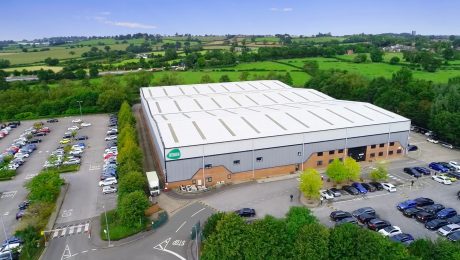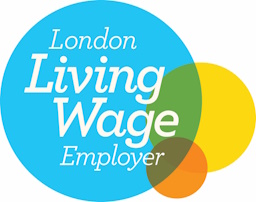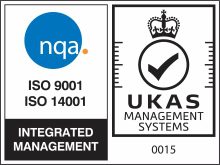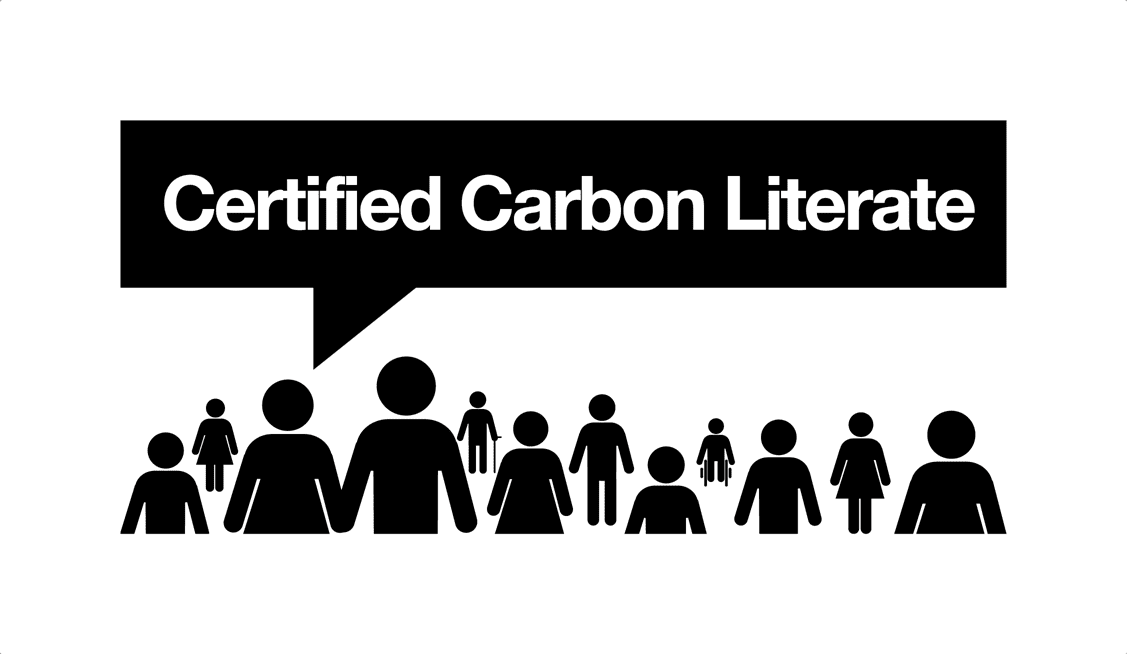Stafford Borough Council Climate Change
By Councillor Jonathan Price
The need for climate action is increasing. At Stafford Borough Council we recognize this and have committed to becoming a carbon neutral authority by 2040.
Over the past few years, we have developed and delivered a range of initiatives which contribute to achieving net zero within Stafford Borough. We have installed solar panels on the roofs of our buildings, have replaced the cremators at Stafford Crematorium, and have installed electric vehicle charge points on our car parks. Now we are looking to go further.
Over the coming years, we will work with stakeholders, the community, and local businesses to identify ways in which can enable the transition to net zero in Stafford Borough. We will identify opportunities to increase the deployment of renewable energy infrastructure in the Borough, reducing the Borough’s reliance on fossil fuels. We will work with our recently formed Climate Change Community Panel to provide residents and local businesses with the tools and information they need to reduce their carbon emissions. We will focus on building resilience to the now unavoidable impacts of climate change through the development and delivery of a range of climate adaptation measures. We will work in partnership with stakeholders and partner organization to achieve the above.
More details of how we are delivering climate action, and how we are helping Stafford Borough to become more sustainable are set out on website, can be found here: (link: Climate Change and Green Recovery | Stafford Borough Council (staffordbc.gov.uk))
- Published in Clean Air Conscious
TopCashback Blog
Although as a cashback site, we might not be up there with the biggest culprits of carbon emission, that doesn’t mean that we can ignore the impact we have on our planet. Quite the contrary. In fact, we have joined the global ‘Race to Zero’ campaign by committing to Net Zero on the SME Climate Hub.
The main impact our business operations have on the environment are the carbon dioxide emissions generated due to the energy required to run our offices, devices, and servers. However, for the last three years we have offset any Scope 1 and 2 emissions (plus corporate travel between our offices) that we haven’t been able to eliminate. We’re also working hard to understand and reduce our Scope 3 emissions.
The below are just some of our current efforts but we are always looking for more ways to improve:
· We use power suppliers who are 100% renewable energy
· We use 100% or 99% non-landfill waste management contractors
· We use water meters and water shut off timers to prevent leaks or system malfunctions causing major damage and wasting water. We also filter our tap water, thereby removing the need for our staff to buy bottled water.
· We use LED light bulbs with movement sensors to save on energy consumption.
· We have input various recycling procedures (via our Green Team workforce)
· We are currently undertaking a solar panel project at our Stafford office. This installation aims to use maximum roof space available for tier one panels to enable 63W of power production saving approximately 20 tonnes of CO2 per year, relieving stress on the grid by feeding in an allowance set by Western Power. The system will allow us to use 80%+ of the power production while the offices are operational. Our goal is to not just ‘tick a green box’ but to maximise solar capabilities
· We also invest most of our retained earnings into organisations that have a genuine intention to generate a tangible, beneficial social or environmental impact, helping support us on our SDG focus
- Published in Clean Air Conscious
Revival of the Fittest
There are many misconceptions around refurbished tech and the value it can bring and an even more urgent need to raise awareness around the E-waste crisis and why we should be careful when choosing a partner to take care of our redundant or unwanted IT. Stone Group believes that all technology companies should take more responsibility for e-waste and should offer as standard, an effective and secure IT recycling solution.
As of 11 am on the 28th January 2022, a total of 3,761,395 tonnes of electronic waste has been generated and thrown out*. E-waste is one of the largest and fastest-growing waste streams in the world and the toxic chemicals used in tech are leaked when disposed of incorrectly, harming the planet, the animals, and humans, causing serious health issues to all.
Why choose refurbished?
Refurbished equipment is a reliable, cost-effective, eco-friendly and highly beneficial option for all organisations and yet many still buy new. Stone Group conducted a survey with over 250 senior decision-makers with responsibility for green initiatives across public and private sector organisations and the results were surprising. Only 32% would only buy new tech and of that, 39% said this was because they were concerned that refurbished models would be inferior to new models. Whilst these concerns have been unfounded, this shows that more needs to be done to communicate the benefits of refurbished technology.
If you need help with any unwanted technology, speak to Stone. Stone Group have developed a multi-award-winning IT recycling app, Stone 360, available on Apple and Android devices, which is revolutionising how organisations recycle their IT and create a more sustainable future. To read more about our Stone 360 app visit: www.stonegroup.co.uk/stone-360
Source: https://www.theworldcounts.com/stories/electronic-waste-facts*.
- Published in Clean Air Conscious
Case Study: Woolcool Sustainable
Woolcool is an innovative and award-winning manufacturing family business, based in Stone, Staffordshire. They have developed a range of sustainable products, including their insulated packaging solutions using 100% pure wool amongst other natural materials. Woolcool’s solutions are used for the transportation of temperature sensitive products. Their technology is the foundation upon which the business ethos, product range and culture is built. As one of the first packaging companies in the UK to achieve B Corp certification, they believe in business as a force for good, considering their impact on people and planet in all decision making. Sustainability isn’t just about environmental impact, but also social.
Woolcool recognise the immediate and future importance of considering sustainability in all business practices, which is why they strive to continually improve in this area. They are the first to admit that they aren’t perfect, and there is still so much more they can do. One main area in which they are focused to improve their impact is in starting their journey to conduct a full and in-depth LCA. Their recent completion of a Carbon Footprint Analysis has provided a solid starting point to assess where they can begin to reduce these emissions. Whilst focus on reduction of their Carbon Footprint is important, this was just the first stage in a whole matrix of other environmental measures. They are working with Keele University to investigate, measure, review and improve all aspects of their environmental impact.
Two such examples of this continual goal to improve, particularly with regards to carbon emissions, is the elimination of the need for gas in their facility, followed by the installation of a Building Management System to reduce energy consumption by monitoring when heat and lighting is needed. They have partnered with Keele University on a second project, to review their energy usage further, looking at ways to improve, such as the installation of solar panels or heat exchange opportunities.
There are many benefits Woolcool have seen when adopting this focus, and many more they hope to see in years to come. A review of energy usage ensures consumption is as efficient as possible in a world of spiralling energy costs, a win-win situation for both the bottom line and the planet. They have seen customer engagement in these practices, with a number of their customer base requesting environmental measures when going to tender, and Woolcool were able to provide these immediately. These type of requests are growing in number.
Whilst reviewing sustainable practices is currently widely seen as a ‘nice to have’, it won’t be too long until more sustainable practices will be encouraged, if not enforced. It is always healthier for a business to choose to implement changes over a controlled timeframe, rather than being forced to do it quickly. This approach allows this slow, manageable transition. Finally, and the key benefit, is the future-proofing of their business and most importantly, playing their part in protecting the future of this planet.
- Published in Clean Air Conscious
Sustainable Development Goals
No matter how large or small, and regardless of industry, all companies can do their bit to save the planet.
While the scale and scope of the global goals is unprecedented, the fundamental ways that business can contribute remain unchanged. The UN Global Compact asks companies to first do business responsibly and then pursue opportunities to solve societal challenges through business innovation and collaboration.
Global challenges – ranging from climate, water and food crises, to poverty, conflict and inequality – are in need of solutions that the private sector can deliver, representing a large and growing market for business innovation. In the rush to transform business models and systems for the future, integrity and values will have a huge role to play. For companies wanting to advance the SDG agenda, the job starts by acting responsibly – incorporating the Ten Principles of the UN Global Compact widely into strategies and operations, and understanding that good practices or innovation in one area cannot make up for doing harm
Find out how your business can make a difference here: What You Can Do | UN Global Compact
- Published in Influence & Network












